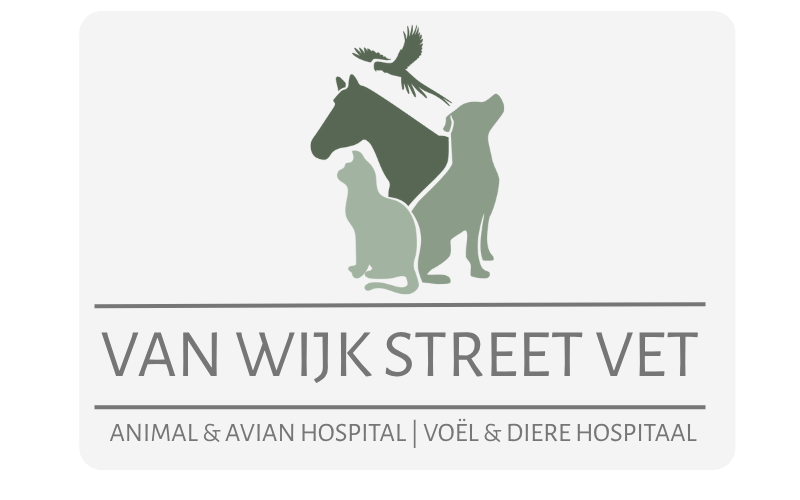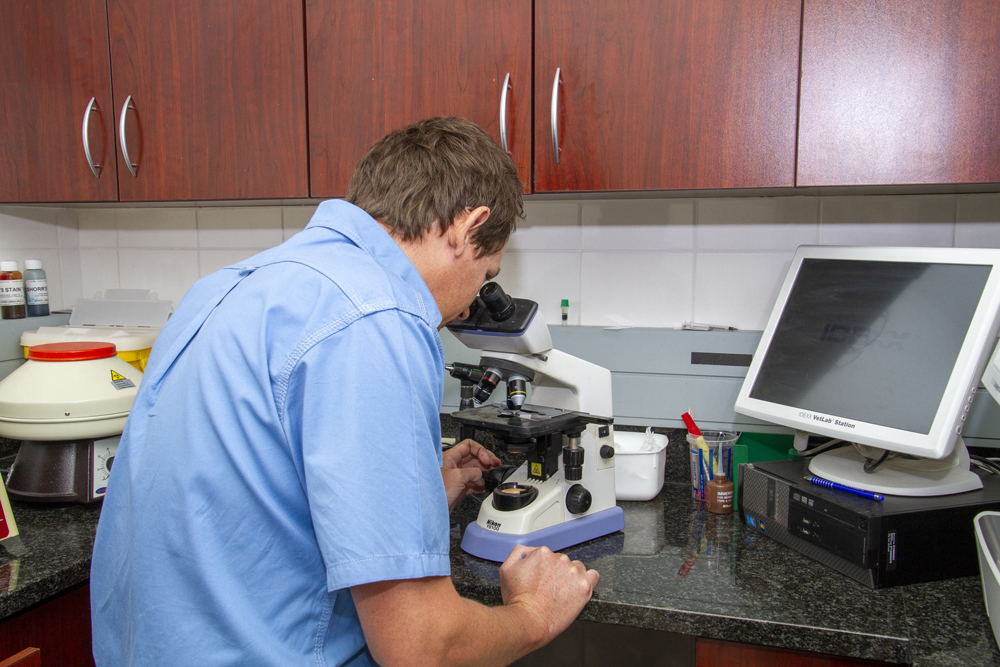Small Animal Vaccinations
Small Animal
Vaccinations

Vaccination saves lives
It is of vital importance to ensure your cat & dog vaccinations are up to date. Vaccinations protect against viral and bacterial diseases.
Any pet, whether indoors or outdoors, are at risk of getting infected. It is much more costly to treat your pet for a serious illness, that could have been prevented if your pet was vaccinated. See the vaccination guideline for South Africe below.
Basic vaccination programme for dogs
|
Antigen |
Initial puppy vaccination |
Initial adult vaccination |
Re-vaccination recommendation |
|
CPV, CDV, and CAV-2 Core |
6 weeks 9 weeks 12 weeks Thereafter veterinarians may suggest to vaccinate again at 16 weeks and perform serological testing to confirm protective titres thereafter |
Two doses 3 weeks apart |
Booster at 6 months of age to 1 year of age and thereafter every third year (use of vaccines with a licensed DOI of three years is encouraged) |
|
Rabies Core |
12 weeks 4 months of age to 12 months of age |
Single dose |
Every 3 years (use of vaccines that have a three-year duration of immunity claim on the manufacturer’s data sheet is encouraged). When pet is likely to travel, recommendation should be annually. |
|
Parainfluenza Non-core but highly recommended |
6 weeks 9 weeks 12 weeks Thereafter veterinarians may suggest to vaccinate again at 16 weeks and perform serological testing to confirm protective titres thereafter |
Two doses 3 weeks apart |
Revaccination (booster) at either 6 months or 1 year of age, then annually for all pets at risk |
|
Bordetella bronchiseptica Non-core but highly recommended |
As per data sheet from manufacturer |
Two doses 3 weeks apart if booster is required or single intranasal dose |
Annually for all pets at risk |
|
Leptospirosis Non core |
Initial dose at 8 weeks of age or older. A second dose is given 3 weeks later |
Two doses 3 weeks apart |
Annually for all pets at risk. Local relevance remains questionable and further research is required. Travel regulations may require vaccination against Leptospirosis. |
|
Canine corona virus |
Not recommended |
||
Basic vaccination programme for cats
| Antigen | Initial kitten vaccination | Initial adult vaccination | Revaccination recommendation |
|
FPV, FHV-1, FCV Core |
6 weeks 9 weeks 12 weeks Thereafter veterinarians may suggest to vaccinate again at 16 weeks and perform serological testing to confirm protective titres thereafter |
Two doses 3 weeks apart | Booster at 6 months of age to 1 year of age and thereafter every year in cats with high risk and every third year in cats with low risk with owner informed consent |
|
Rabies Core |
12 weeks and again at 4 months of age to 12 months of age | Single dose | Every 1-3 years depending on whether the cat is likely to travel or not |
|
Feline Leukaemia Virus Non-core but highly recommended in young cats |
8-9 weeks of age with a second dose administered 3 weeks later |
Two doses 3 weeks apart |
Revaccination (booster) at 6 months to 1 year of age, then annually for cats with sustained risk |
|
Bordetella bronchiseptica Non-core |
Administer a single dose intranasal as early as 4 weeks of age. | Administer a single dose intranasal. |
Annual booster is indicated for cats with sustained risk |
|
Chlamydia felis Non-core |
Initial dose at 8 weeks of age or older. A second dose is given 3 weeks later | Two doses 3 weeks apart |
Annual booster is indicated for cats with sustained risk |

Send us a Message

Visit Our Clinic
Cnr Van Wijk & Giraffe Street

Call Us Today
013 744 1836








